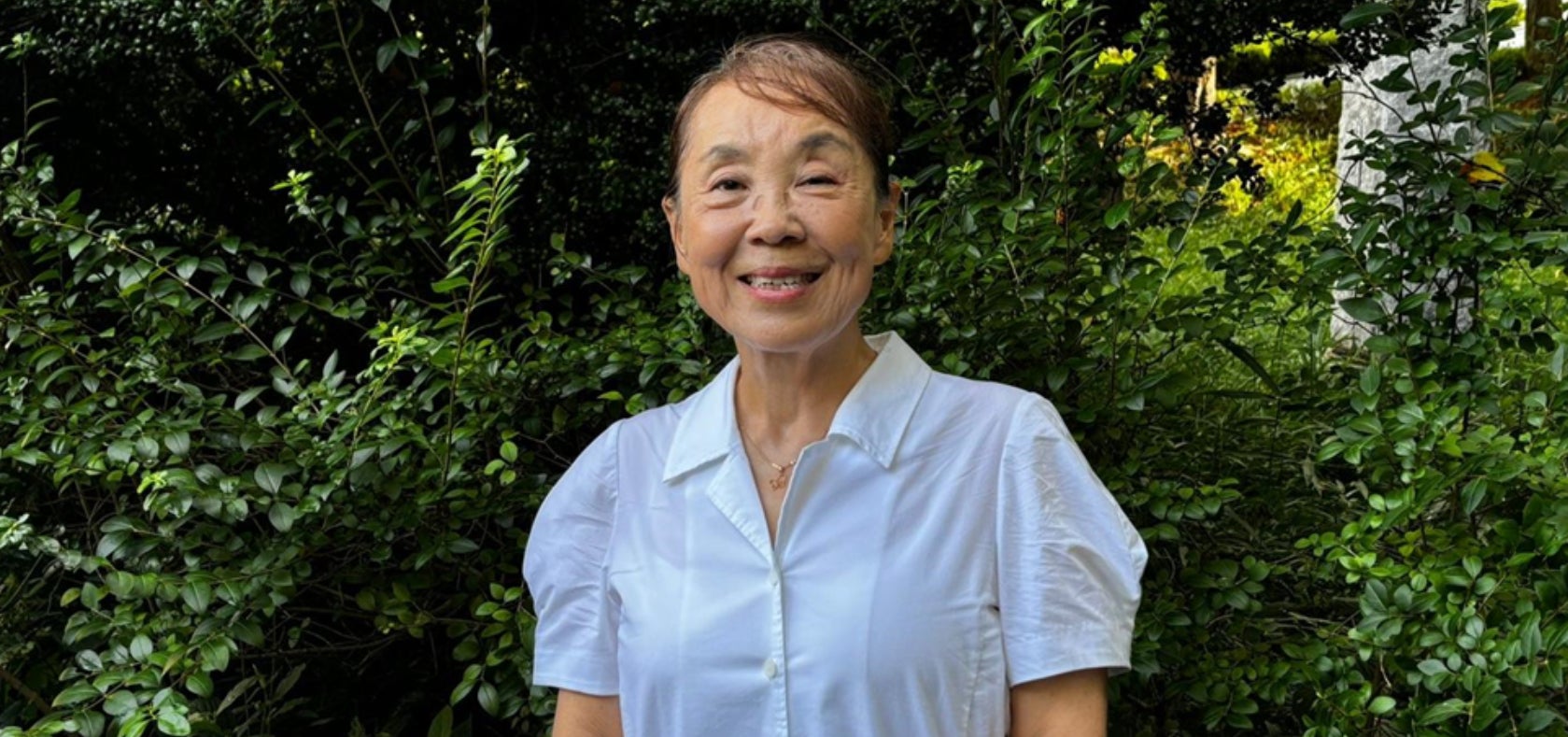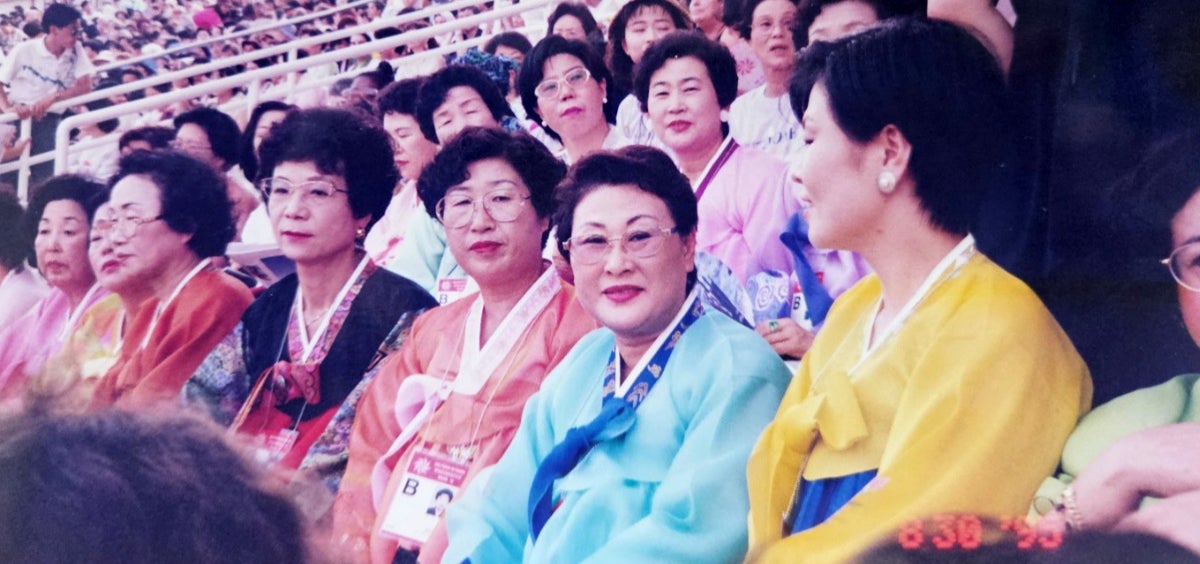Take Five Republic of Korea: “The Beijing Declaration and Platform for Action catalyzed investments in women, yielding highly effective outcomes”
Date:

Dr. Lee Sang Duk is currently a professor at Woosong University. In 1994, she played a key role in establishing the Korea Women’s Non-Governmental Organization (NGO) Committee, which was composed of 97 women’s organizations. As the Secretary-General, she planned and coordinated various activities that enabled over 700 women leaders from across the country to prepare for and actively participate in the Fourth World Conference on Women in Beijing and its parallel NGO Forum.
Since the 1980s, she has been involved in various women’s rights organizations in the Republic of Korea, including the Korean League of Women Voters, Korean Women’s Hotline, and The Women’s News. In 1989, she served as Parliamentary assistant to the Parliamentarian Park Young-sook in the Republic of Korea’s 13th National Assembly, assisting in legislative activities such as the revision of family and childcare laws. In 1994, after participating in the East Asian Women's Forum, she returned to women's movement activities and was appointed the Standing Vice President of the Korean Women’s Hotline.
After the Fourth World Conference on Women, Dr. Lee contributed to the formulation of the women’s policies in the Republic of Korea as the Cooperation Coordinator for the Special Committee on Women’s Affairs, the Director of the Discrimination Improvement Bureau of the Ministry of Gender Equality, and the Women's Policy Secretary in the Presidential Office. In 2003, she served as the president of Anseong Women’s Polytechnic College, a national technical college under the Ministry of Employment and Labor. Since 2021, she has been a special professor at Woosong University, lecturing on Social Welfare and Human Rights while engaging in volunteer activities supporting social welfare foundations, migrant women, refugee children, and impoverished children. She also served as the chairperson of the Migrant Youth Foundation.
How would you describe the sentiment surrounding the preparations for the 1995 Fourth World Conference on Women in Beijing?
The atmosphere was filled with enthusiasm among NGOs when we learned that we could participate in the 1995 Fourth World Conference on Women in Beijing. Until then, only a few representatives from Korean NGOs had attended the previous three World Conferences on Women. At that time, the Ministry of Political Affairs (II), established as the dedicated agency for women's issues, and the UN Development Programme (UNDP) office in Seoul agreed to support NGOs’ systematic preparatory activities to make the Fourth World Conference on Women a catalyst for the advancement and empowerment of women in Korean society. This led to the formation of the Korea Women’s NGO Committee, comprising 97 organizations. A tripartite agreement was signed between the government of The Republic of Korea, the UNDP, and the Korean Women's NGO Committee to financially support approximately $102,000 for their activities.
What was the significance of the Korea Women's NGO Committee's participation in the conference?
We commenced preparations for the conference by disseminating information through forums, seminars, and workshops, all supporting the formulation of sectoral agendas and strategies. We facilitated activities led by stakeholders, including farmers and women with disabilities, laying the foundation for their active participation in policy-making processes. We also provided guidance on application procedures and local activity preparations, enabling more women to participate in the conference.

As a result, approximately 700 NGO representatives participated in the NGO forum held in parallel with the inter-governmental conference. Notably, the inclusion of three representatives from the Korean Women's NGO Committee among the 36 members of the Korean government delegation indicated a strong commitment to incorporating grassroots voices from various social sectors. Additionally, Kim Mi-yeon, currently Vice-Chairperson of the UN Committee on the Rights of Persons with Disabilities, was the Korean delegation, highlighting our commitment to inclusive participation.
In what ways did the outcomes of the 1995 Fourth World Conference on Women in Beijing influence societal dynamics in Korea?
The Fourth World Conference on Women in Beijing had a profound impact on Korean society, significantly raising awareness of women’s issues. In October 1995, just one month after the conference, the Presidential Advisory Council on Globalization unveiled the "10 Agendas for the Advancement of Women's Social Participation." This momentum continued with the enactment of the Basic Act for the Advancement of Women in December 1995, providing a legal framework for the systematic promotion of women’s policies and marking the beginning of serious gender mainstreaming efforts.
The active participation of women activists, including myself, in shaping public discourse and advocating for change played a crucial role in influencing the Kim Dae-jung administration to adopt gender mainstreaming as a central policy agenda. Many participants from the conference, myself included, later entered government and the National Assembly, directly contributing to policy development.
In 1997, the Women’s Development Fund was established, and the first Basic Plan for Women’s Policy was formulated, further signaling the start of more structured efforts toward gender equality in Korea. Additionally, the government strengthened its administrative system by creating Gender Policy Officer’s Offices at the division director level in key ministries, ensuring that gender considerations were embedded in policymaking across all sectors.
What lessons were learned from the experience?
One of the key lessons learned was the paramount importance of gender financing. A government investment of $102,000 back in the days resulted in elevating gender issues to the forefront of the agenda in the Republic of Korea’s society. This investment was particularly impactful because it was directed toward empowering women’s organizations. Bringing together women from diverse backgrounds to collaboratively plan and implement preparatory activities strengthened their capacity and solidarity. Many of those who participated in the Fourth World Conference on Women have since emerged as national leaders across various sectors, championing women’s rights in the policy-making bodies. There is a need for more successful investments like this, where governments, civil society, and UN agencies collaborate in a concerted effort. This approach was especially effective in linking international normative frameworks for women to domestic policies and programs.
What steps should be taken to continue the progress made?
As we celebrate the 30th anniversary of the Beijing Declaration and Platform for Action, it is a meaningful moment to reflect on the lessons learned since 1995. One of the key takeaways is the importance of gender financing, especially when directed towards investing in people. Supporting women's organizations is particularly impactful, as it leads to women’s empowerment, strengthens solidarity, and raises social awareness. Over the past 30 years, the status of women has improved significantly, but we must continue to make concerted efforts to achieve full gender equality. I hope that the progress made in the Republic of Korea can serve as a contribution to global efforts. After all, gender equality is a shared goal that requires cross-border cooperation for lasting progress.
Check out this video on Korea’s Experience at the 1995 Beijing World Conference on Women with Lee Sang Duk: